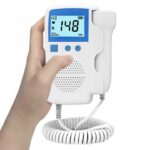Introduction
Teaching in a specialist area requires a unique blend of subject knowledge, pedagogical skills, and an understanding of learners’ needs. Unit 423: Teaching in a Specialist Area focuses on developing these competencies, equipping educators to deliver high-quality instruction tailored to their specific fields. In this blog, we will delve into the key components of this unit, effective teaching strategies, assessment methods, and much more.
- Understanding Unit 423: Teaching in a Specialist Area
1.1 What is Unit 423?
Unit 423 is a professional development program aimed at educators who wish to deepen their expertise in a particular subject area. It covers various aspects of teaching, including curriculum design, learner engagement, assessment techniques, and reflective practices.
1.2 Importance of Specialization
In today’s diverse educational landscape, specialization allows educators to address the specific needs of learners. This unit empowers teachers to deliver tailored instruction, enhancing student engagement and achievement.
- Key Components of Unit 423
2.1 Curriculum Design
Effective curriculum design is crucial for teaching in a specialist area. This involves aligning learning objectives with assessment strategies and ensuring the content is relevant and engaging.
2.2 Pedagogical Approaches
Understanding different teaching methodologies is essential. Unit 423 emphasizes the use of various approaches, including:
- Constructivism: Encouraging students to build their understanding through experiences.
- Collaborative Learning: Promoting teamwork and communication among students.
- Differentiated Instruction: Adapting teaching methods to meet the diverse needs of learners.
2.3 Assessment Strategies
Assessment is a critical aspect of teaching. Unit 423 covers formative and summative assessment methods, focusing on how to measure student progress effectively. This includes:
- Quizzes and Tests: Traditional methods to assess knowledge retention.
- Project-Based Assessments: Allowing students to demonstrate their understanding through practical applications.
- Peer Assessments: Encouraging collaboration and critical thinking.
- Effective Teaching Strategies
3.1 Active Learning Techniques
Engaging students actively in the learning process enhances retention and understanding. Techniques such as group discussions, simulations, and hands-on activities are highly effective.
3.2 Technology Integration
Incorporating technology into teaching practices can enhance learning experiences. Tools like online resources, educational software, and multimedia presentations help make lessons more interactive and appealing.
3.3 Building a Positive Learning Environment
Creating a supportive and inclusive classroom environment is vital for student success. Strategies include:
- Establishing Clear Expectations: Setting behavioral and academic standards.
- Encouraging Open Communication: Fostering a culture of respect and trust.
- Providing Constructive Feedback: Helping students understand their progress and areas for improvement.
- The Role of Reflection in Teaching
4.1 Importance of Reflective Practice
Reflection allows educators to evaluate their teaching methods, assess student learning, and identify areas for improvement. It is an essential component of Unit 423.
4.2 Techniques for Reflection
Educators can employ various techniques to enhance their reflective practice, including:
- Journaling: Keeping a reflective journal to document teaching experiences and insights.
- Peer Observation: Collaborating with colleagues to observe and discuss teaching practices.
- Feedback Sessions: Seeking input from students about their learning experiences.
- Challenges in Teaching in a Specialist Area
5.1 Keeping Up with Subject Changes
Specialized fields often undergo rapid changes. Educators must stay informed about the latest developments, trends, and best practices to provide relevant instruction.
5.2 Addressing Diverse Learner Needs
Educators face the challenge of meeting the varied needs of students in a specialized area. Understanding individual learning styles, cultural backgrounds, and abilities is crucial.
- Resources for Unit 423
6.1 Recommended Readings
- “The Art of Teaching” by Jay Parini
- “Teaching in a Specialist Area: A Practical Guide” by Fiona Smith
6.2 Online Resources
- National Center for Teaching Excellence
- Specialist Teaching Networks
- Frequently Asked Questions (FAQs)
7.1 What qualifications do I need to teach in a specialist area?
To teach in a specialist area, you typically need a relevant degree and teaching qualifications. Additional professional development, such as completing Unit 423, is highly beneficial.
7.2 How can I assess my effectiveness as a specialist teacher?
You can assess your effectiveness through student feedback, peer evaluations, and self-reflection on your teaching practices and student outcomes.
7.3 What support is available for teachers in specialist areas?
Many educational institutions offer professional development programs, mentorship opportunities, and access to resources that support teachers in specialized areas.
7.4 Can I teach multiple specialist areas?
Yes, educators can teach in multiple specialist areas, but it’s essential to ensure you have the necessary knowledge and skills for each subject.
7.5 How does technology enhance specialist teaching?
Technology enhances teaching by providing interactive learning experiences, facilitating access to resources, and enabling effective communication and collaboration among students.
Conclusion
Unit 423: Teaching in a Specialist Area is an invaluable resource for educators seeking to enhance their teaching practice. By focusing on effective curriculum design, diverse pedagogical strategies, and reflective practices, teachers can create a dynamic learning environment that meets the needs of all students. Embracing specialization not only benefits educators but also significantly impacts student success. As you embark on your journey in this unit, remember that ongoing learning and adaptation are key to effective teaching in a specialist area.


